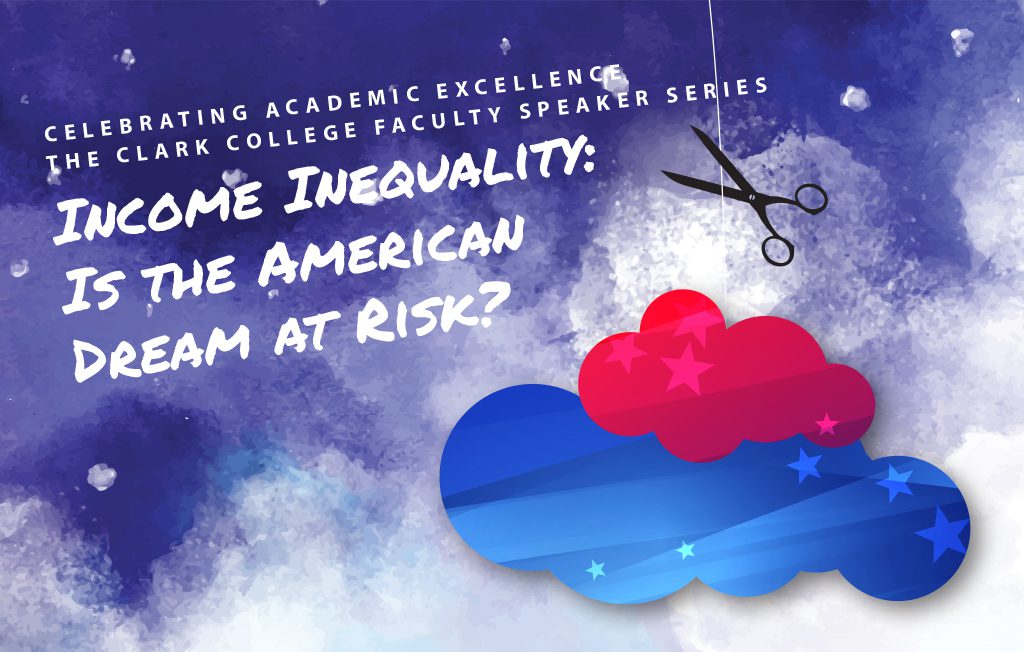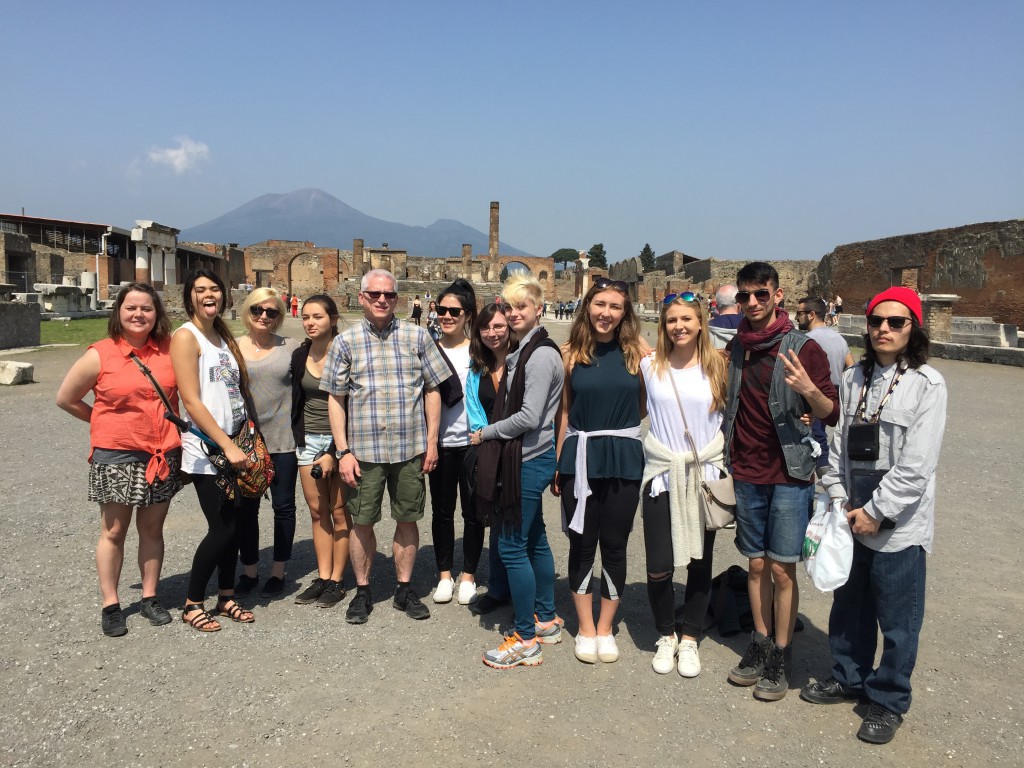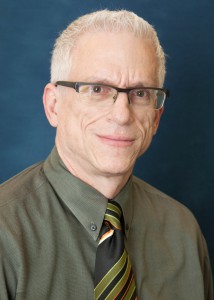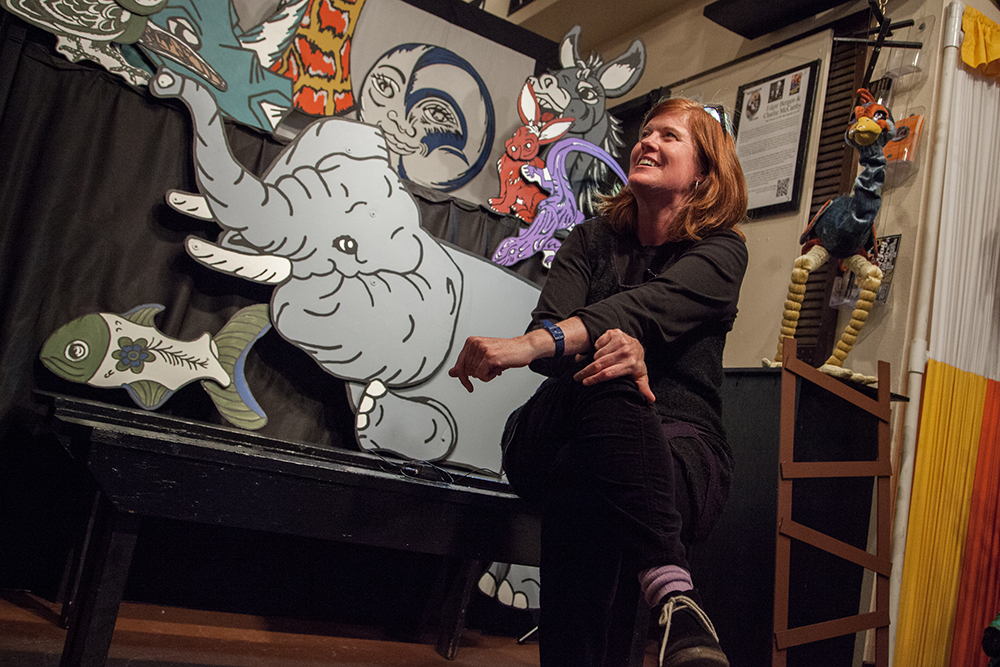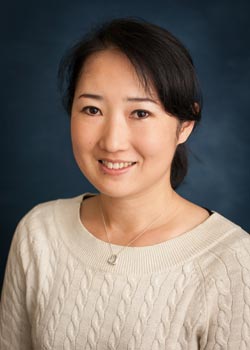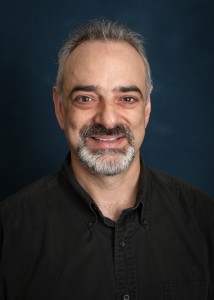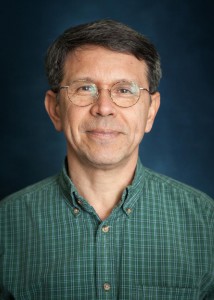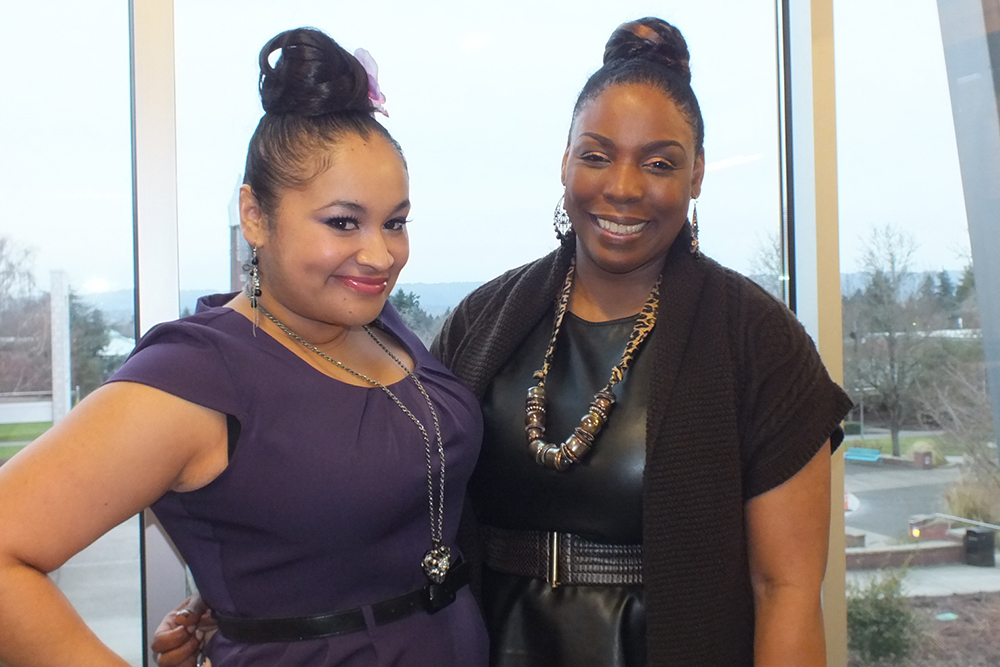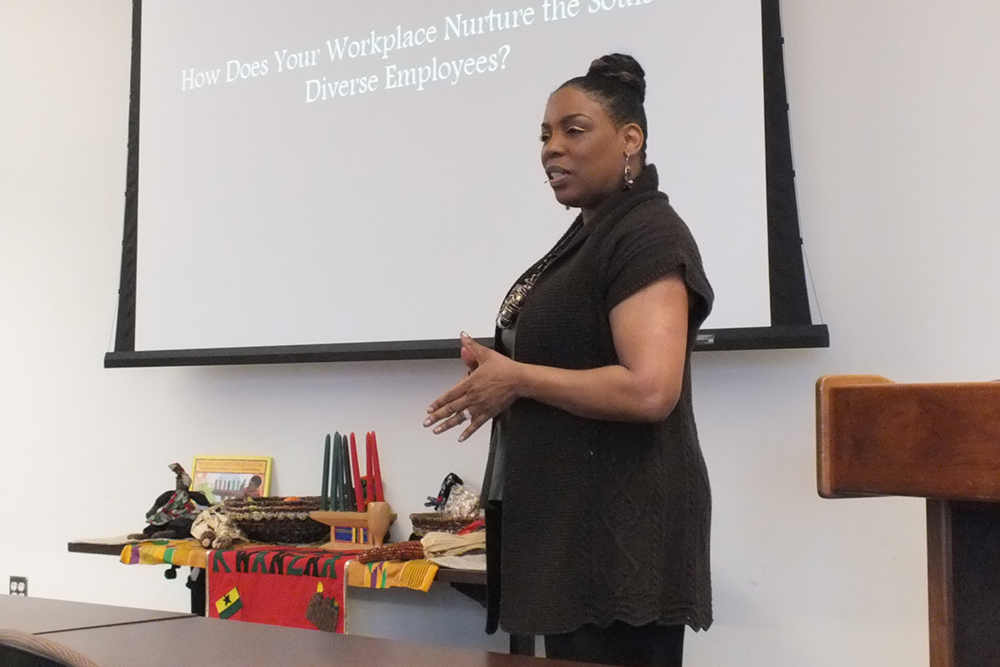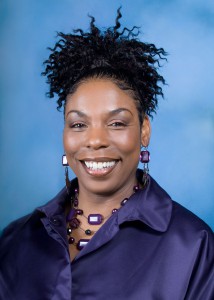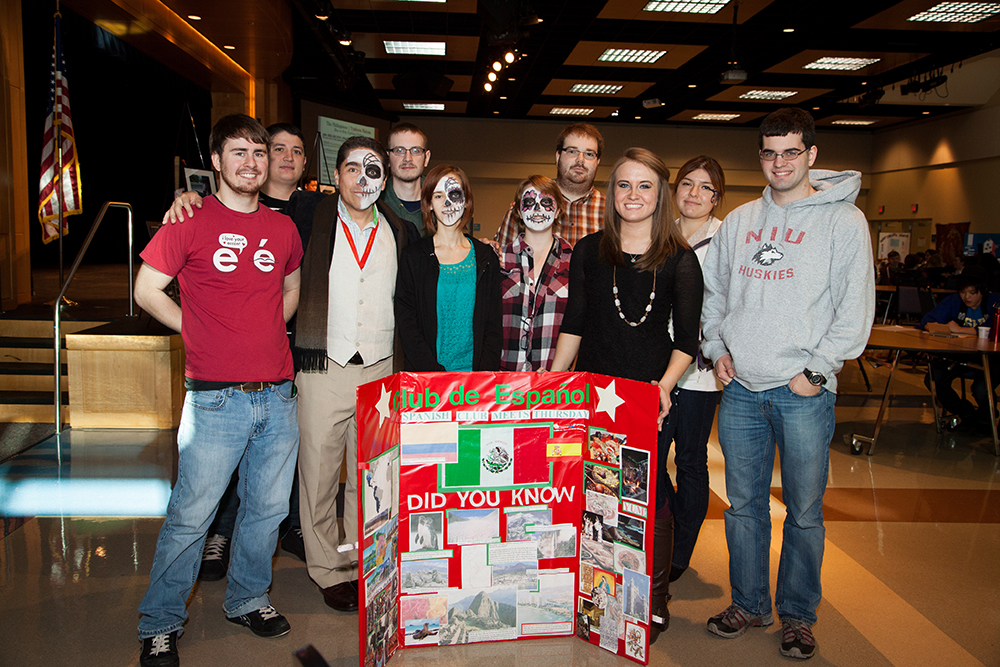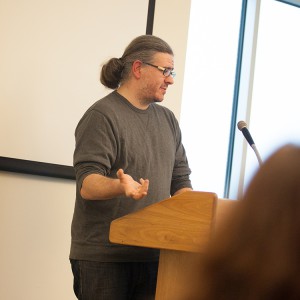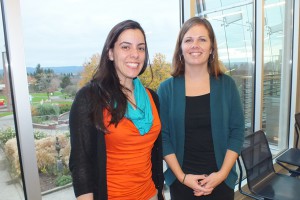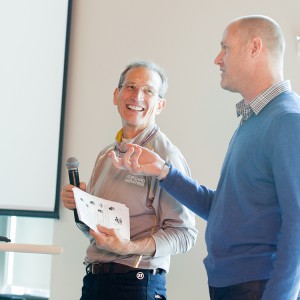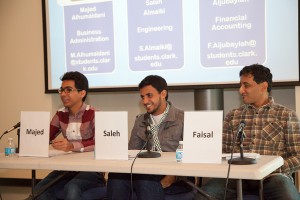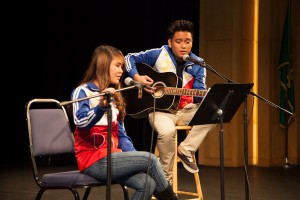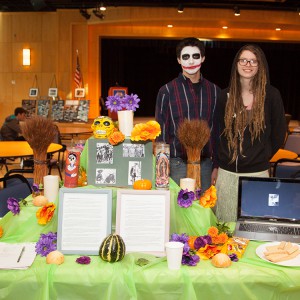A mindful exploration
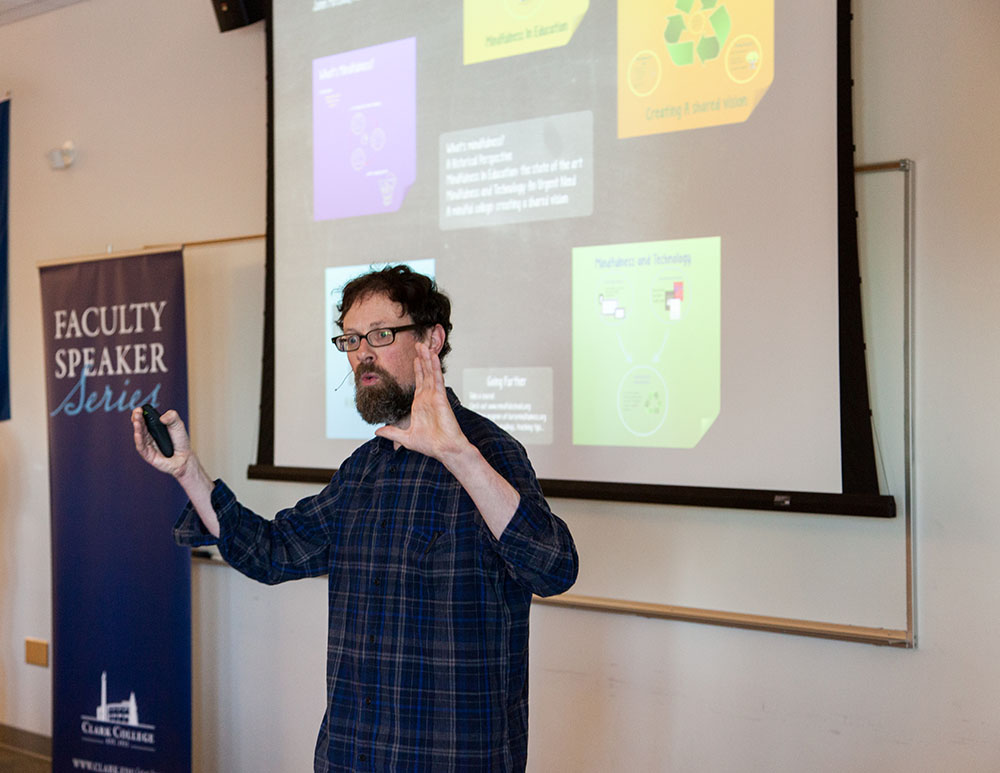
Math professor John Mitchell discussed the role of mindfulness in education at the Faculty Speaker Series.
On May 3, mathematics professor John Mitchell brought his message of mindfulness–the simple practice of being aware of one’s present-moment experience—to the spring installment of the Faculty Speaker Series.
Mitchell said his goal was to inspire the audience “to be part of something that I feel everyone should know about” as he described the modern history of an ancient practice, his path to discovering it, and his passion for bringing mindfulness to Clark College.
As Mitchell described it, mindfulness is simple, but not easy. It requires training and repetition to notice when one is lost in their inner dialog and to return to their present-moment experience.
Mitchell noted that mindfulness has been practiced in many cultures throughout history. “This is a universal human skill,” he said, “we all have the innate ability to be mindful, as well as the tendency to get lost in thought.” He explained that mindfulness does not attempt to eliminate thoughts, but simply to notice them. It also includes awareness of one’s emotional state and the physical sensations of the moment.
Mitchell emphasized the importance of using mindfulness in the face of technologies that are designed to distract. According to the Neilson Total Audience Report, adults use their electronic devices more than ten hours a day on average; for teens, the average is nine hours, according to a 2015 media census by the nonprofit Common Sense Media. That being the case, said Mitchell, there is an immediate need to address the impact that technology has on our society.
Mindfulness, Mitchell said, can aid people in avoiding a combination of information overload and distraction. Mitchell said many people find themselves in what behavioral scientists call a “ludic loop,” a mental zone that takes a person out of present-based awareness and into a disconnected mindless state where addictive behaviors thrive. Mitchell said that mindfulness practices, like becoming aware of the breath and body, can help one to avoid ludic loops while also encouraging better moderation in the use of technology.
Another area that Mitchell stressed in his presentation is the importance of mindfulness in education. Research on the benefits of mindfulness in education is growing, producing 700 published papers last year alone. In K-12 education and among four-year colleges and universities, mindfulness groups are becoming more and more prevalent. One mindfulness training program that is commonly used in higher education is Koru Mindfulness. Mitchell, who is a certified teacher in the method, was surprised to find out that very few community colleges were represented in the Koru community. With the mindfulness classes that Mitchell offers through Clark’s Economic and Community Development program, Clark College is one of the few exceptions.
The Clark College Mindfulness Club is another marker of Clark College’s lead on mindfulness in community colleges. Mitchell thanked the two students in the audience who have contributed to that distinction, Clark Mindfulness Club co-facilitators Nova Gump and Steven Mitchell (no relation). Steven Mitchell founded the club in the spring of 2016; John Mitchell called it a “foundational ingredient of a mindful college.”
Along with clubs and classes, Mitchell would like to see mindfulness introduced in College 101 classes and generally incorporated into the teaching methods of faculty. Moreover, he sees a strong connection between a mindful environment and guiding the work of the college to achieve initiatives such as Guided Pathways.
“What does a mindful community college look like?” John Mitchell asked the audience. “I want Clark to be answering that for other community colleges. That’s my vision: a mindful college, a college that’s seen as a leader.”
If you are interested in learning more about mindfulness at Clark College, contact the Mindfulness Club at clarkmindfulness@gmail.com or John Mitchell at jmitchell@clark.edu.
About the Faculty Speaker Series
Since 2008, the Faculty Speaker Series has showcased experiences that have enriched both the lives and teaching of Clark’s faculty. Speakers share their professional development accomplishments with the college community, often addressing some of today’s most intriguing issues. Clark faculty members are invited to present experiences including sabbatical, research, field work, or community outreach in a variety of formats including panel discussions, interactive workshops, and/or demonstrations.
Photos: Nick Bremer
J. Nova Gump contributed to this article.
